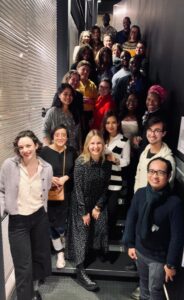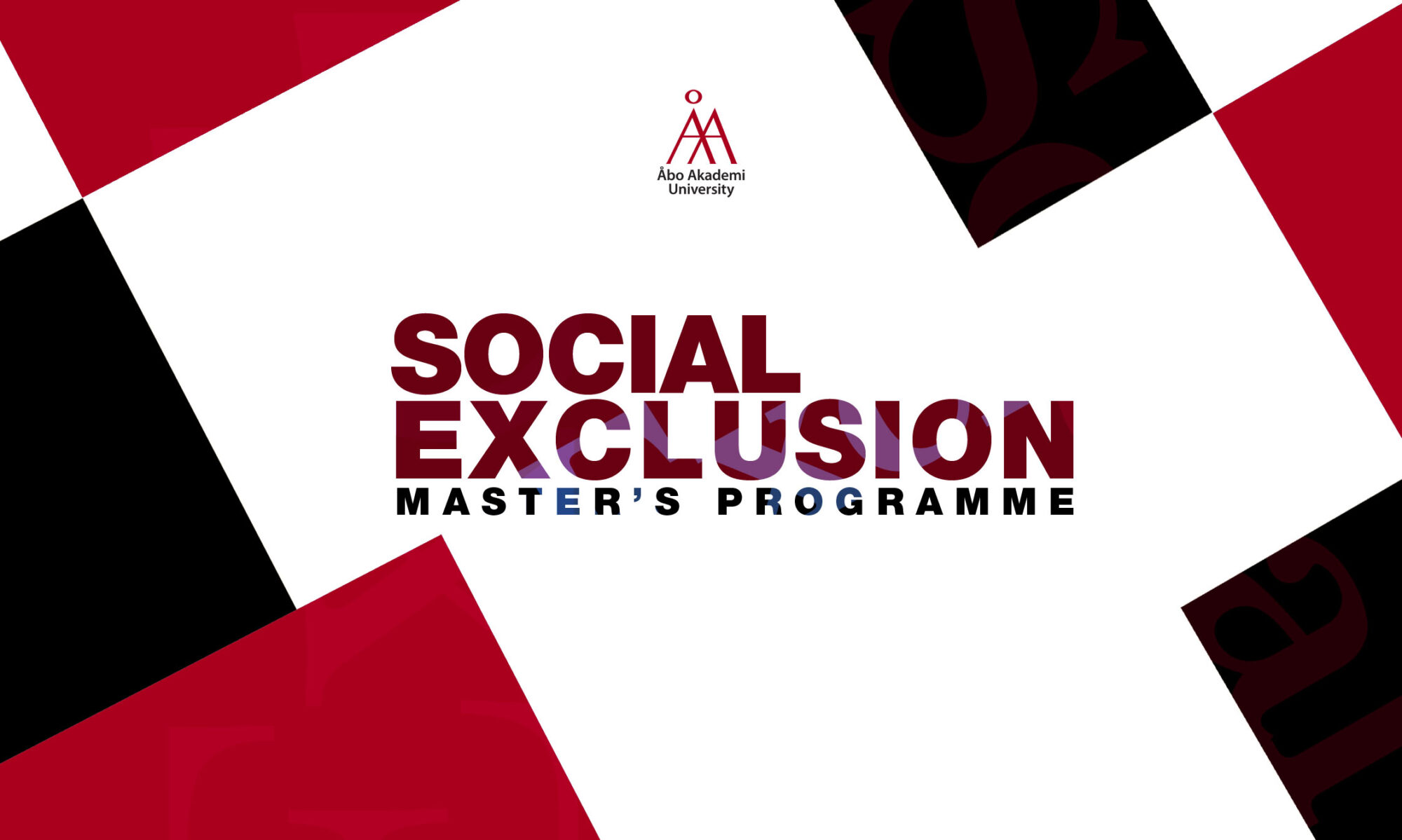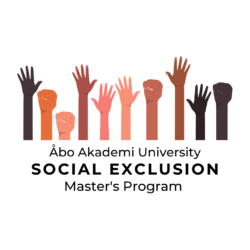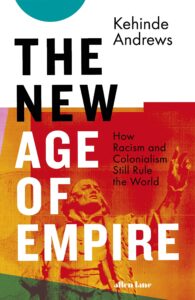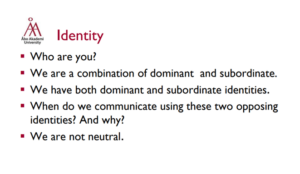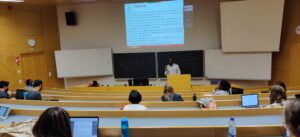In the Autumn of 2018, I joined the Master’s Degree Programme in Social Exclusion as one of the first group of students in the programme. Two years later, in 2020 I graduated and began working as a Project Assistant to the programme, helping to develop it as it entered into its third academic year with its third group of new students. Having gone through the Masters, both as a student and as staff, I thought I would take a moment to share some of my thoughts and experiences on how to understand this complicated term ‘social exclusion’.
The first step to understanding the term ‘social exclusion’ is to define it. Herein begins the struggle to encompass the term as a single entity as it can be broken down and defined in numerous complex ways; as is evident by the scholarly inability to reduce it to a single universal definition. A good definition to begin to understand it is the United Nations’ definition: “social exclusion describes a state in which individuals are unable to participate fully in economic, social, political and cultural life, as well as the process leading to and sustaining such a state” (United Nations 2016:18). Scholars such as Levitas et.al. (2007:9) and Popay et.al. (2008:2) further add to this definition by including that social exclusion is a complex, dynamic, and multi-dimensional process, driven by unequal power distributions in society, across four main dimensions – social, political, economic and cultural – that persists across different levels of society. Resources are thus accessed differently as a result of such processes, resulting in exclusions to participation in societal arenas. It is worth noting that the term has changed in meaning over the decades, as the notion of society has grown to encompass aspects of the ever-globalizing world.
Having navigated some definitions of social exclusion, perhaps it is best to give examples of social exclusion to better understand the complexity of the term. Perhaps a more relatable example of social exclusion would be that of labour market participation. Take for instance, an immigrant who migrates to a new country that has an entirely new language. One hindrance to labour market participation may be on the basis of language skills and competency, whereby employers choose not to hire an individual who does not possess sufficient language competency. On its own, this example may seem common practice on the basis of employment requirements for numerous reasons of their own. However, it is a good one to show the complexity and multi-dimensional aspects of social exclusion as it will be shown. In the first instance, exclusion occurs on the basis of employability until the individual can attain the necessary skills to engage in social participation. This period of attainment of the minimum required social capital is one of exclusion by which the individual is unable to access the resources of the country, as contrasted by other individuals who possessed higher levels of social capital (social capital in this case being sufficient language skills). This inability to access resources, as we have seen in the examples above, reflect an unspoken, unequal power distribution whereupon the attainment of such skills, for the most part, is left to the individual to attain the minimum required social capital in order to be included in social processes. This is further complicated if said individual applied to numerous jobs, all of which returned the same result on the basis of language competency. The added effect of numerous attempts may well be an intrinsic one, in the form of an internalised perception of being excluded. This takes on numerous forms and can include such things as race, ethnicity, nationality, sexuality, etc. if the individual were to perceive these as factors hindering their employability. This internalised exclusion may have added effects to the individual’s access to resources such as, and certainly not limited to, a withdrawal from participation on the basis of feeling excluded. Exclusion in this case, results from the individual’s own feeling of being excluded, which may apply thereafter to participation in such things as simply walking down a street due to such feelings.
This very generalised example can be broken down in numerous ways, however, the key point observable here, is that social exclusion can be very complex and must be looked at via the processes by which it is fuelled. It can be seen from many lenses, and many interpretations. Herein rests the problem with attaining a uniform definition of the term as it is for the most part, very specific to individuals, events, and cases; no two of which can be said to be exactly the same and thus defined as such. That is not to say, however, that studies of social exclusion are impossible. On the contrary, it is in the complexity of it that makes social exclusion worth studying. By understanding the dynamism of it, can we begin to work on finding ways of promoting and implementing practices of social inclusion!
References:
Levitas, Ruth. Pantazis, Christina. Fahmy, Eldin. Gordon, David. Lloyd, Eva. Patsios, Demi (2007). The Multi-Dimensional Analysis of Social Exclusion. Department of Sociology and School for Social Policy Townsend Centre for the International Study of Poverty and Bristol Institute for Public Affairs: University of Bristol. 1-75. <http://www.bris.ac.uk/poverty/downloads/socialexclusion/multidimensional.pdf>.
Popay, Jennie, Escorel, Sarah. Hernández, Mario. Johnston, Heidi. Mathieson, Jane. Rispel, Laetitia. (2008). Understanding and Tackling Social Exclusion: Final Report to the WHO Commission on Social Determinants of Health From the Social Exclusion Knowledge Network. 1-207. <https://www.who.int/social_determinants/knowledge_networks/final_reports/sekn_final%20report_042008.pdf?ua=1>.
United Nations (2016). Report on the World Social Situation 2016. In Leaving no one behind: the imperative of inclusive development. United Nations Publication.
